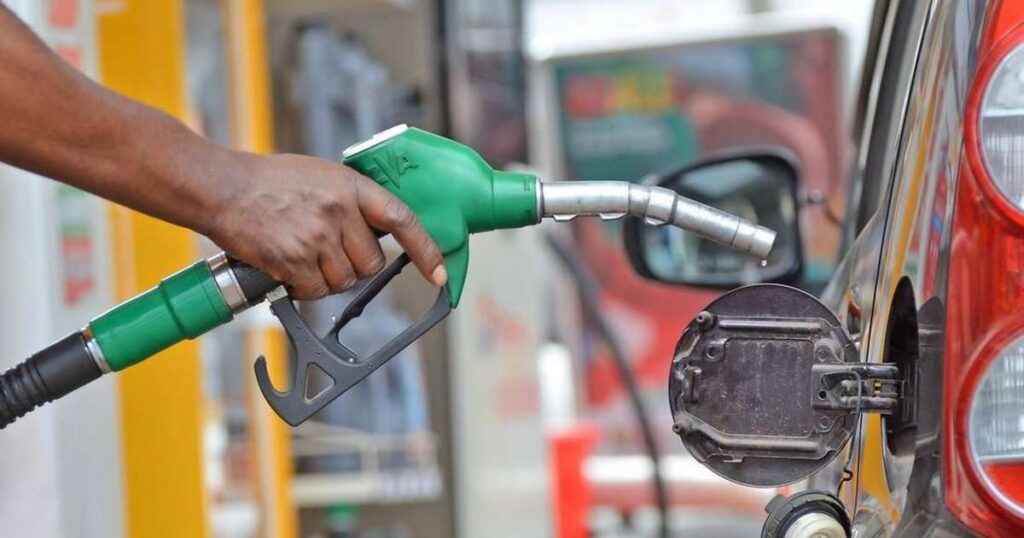Ghanaian consumers can expect significant relief at fuel stations starting November 1, 2025, as petroleum prices are projected to decline notably across the board. According to the latest outlook report from the Chamber of Oil Marketing Companies (COMAC), the prices of petrol, diesel, and liquefied petroleum gas (LPG) will all experience meaningful reductions, marking what could be the largest fuel price drop in 2025.
The report, sighted by JoyBusiness, revealed that petrol prices are expected to fall by up to 5.21% per litre, dropping from GH¢13.93 to about GH¢12.92. Diesel, on the other hand, could experience an even steeper reduction, between 6.03% and 8.13%, with a new average pump price of GH¢13.10, down from GH¢14.56. Meanwhile, LPG prices are projected to decrease by as much as 6.66%, bringing the cost per kilogram to roughly GH¢13.60.
If implemented across the 200-plus oil marketing companies (OMCs) nationwide, these reductions will represent not only the most substantial decline in fuel prices for the year but also one of the most dramatic downward adjustments in recent history. Industry analysts have described the development as historic, noting that it could be the first time in years that petroleum products record double-digit percentage reductions within a single month.

According to COMAC’s market assessment, some oil marketing companies are likely to begin implementing the new prices over the weekend leading up to November 1, while others may delay until early next week as they clear existing stock or recalibrate their pumps.
The downward adjustment in prices is largely attributed to two major factors: a global decline in crude oil prices and the strong appreciation of the Ghanaian cedi during October. The report emphasized that both influences have played an “instrumental role in the projected price decreases at the pumps.”
During the pricing window starting October 16, 2025, the cedi appreciated from GH¢12.63 to GH¢11.21 per dollar, representing an 11.22% gain. This rebound has nearly erased the 13.33% depreciation recorded in the third quarter, signaling renewed market confidence and increased currency stability.
Economists and forex analysts have credited this recovery to the Bank of Ghana’s policy shift towards spot forex sales, which has improved liquidity and transparency in the foreign exchange market. This move is believed to have stabilized the cedi and enhanced investor confidence, creating favorable conditions for fuel price reductions.
On the international front, global crude oil prices fell sharply to a five-month low, dropping by 6.49% to $62.82 per barrel. This decline was driven by escalating trade tensions between the United States and China and heightened concerns over a potential oversupply in the global market during the last quarter of 2025.
Additionally, the prices of refined petroleum products also decreased, with petrol, diesel, and LPG seeing respective drops of -3.30%, -2.48%, and -2.35% on the global market.

The impact of these anticipated reductions extends beyond the petroleum sector. Transport unions, which had been mounting pressure for an upward adjustment in transport fares, are expected to suspend such calls as fuel prices fall. The reductions could also ease inflationary pressures, particularly in food and commodity prices, providing some relief to households and businesses grappling with high living costs.
Economists suggest that this development could serve as a short-term stabilizer for Ghana’s economy. With energy being a key driver of inflation, the anticipated cut in fuel prices could help maintain inflation within a single-digit range in the coming months, provided that the cedi’s appreciation holds steady and international crude prices remain stable.
Some experts, however, remain cautiously optimistic. They warn that while the current trend is encouraging, external factors such as geopolitical tensions, global supply chain disruptions, or domestic tax adjustments could still reverse the gains in the future.
Nonetheless, the Chamber of Oil Marketing Companies remains confident that the November pricing window will bring much-needed relief to Ghanaians. “The combination of improved forex stability and global crude oil decline has created a rare opportunity for a broad-based fuel price reduction,” the report noted.
For many consumers, especially commercial drivers, small business owners, and households, the expected fuel price reduction will likely translate into lower transportation and production costs, helping to improve disposable income levels and stimulate local economic activity ahead of the festive season.
This latest adjustment also underscores the importance of macroeconomic stability and prudent monetary management in cushioning consumers from global price shocks. As Ghana navigates through ongoing economic recovery efforts, sustained currency strength and responsible energy pricing are likely to play a pivotal role in maintaining consumer confidence and keeping inflationary pressures in check.
The fuel price cut, if fully implemented, could mark a defining moment for 2025’s energy and economic landscape, potentially setting a new tone for cost-of-living improvements across the country.
1 Cedi Petroleum Levy Unacceptable – COMAC CEO Warns Government

